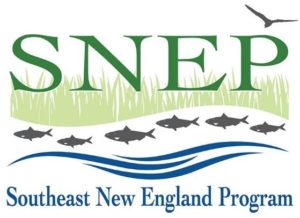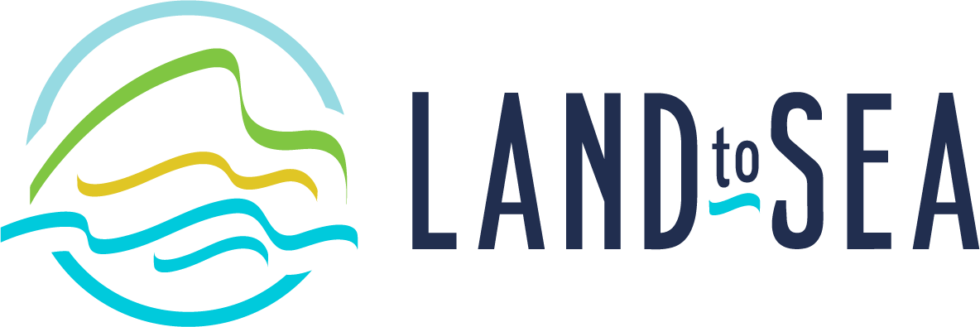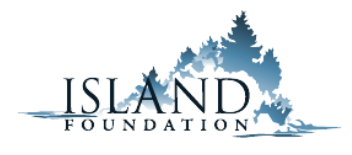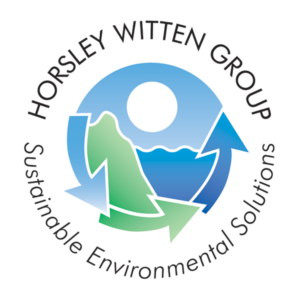Our Land to Sea Speaker Series is back for a third season! The Land to Sea Speaker Series is intended to foster a conversation and sense of collaboration regarding watershed stewardship. The primary goals of these Virtually hosted evening presentations are to break down barriers that exist between environmental projects and the public, to raise awareness, and to expand education along themes of stormwater remediation, green infrastructure, the greater watershed, and water quality sampling.
2022-2023 Land to Sea Series
The Land to Sea Speaker Series was created to foster a conversation and sense of collaboration regarding watershed stewardship. The primary goals of these virtually hosted presentations are to break down barriers that exist between environmental projects and the public, to raise awareness, and to expand education along themes of stormwater remediation, green infrastructure, the greater watershed, and water quality sampling. Highlighting the work of organizations and agencies working on projects to improve ocean health in the community and expanding the community’s knowledge about local environmental issues, solutions that are being used and have them feel empowered to make more environmentally-responsible behaviors in their own lives.
The first of this three event series featured University of Rhode Island’s Graduate School of Oceanography (GSO) PhD students, Nicole Flecchia and Riley Secor. Working out of GSO’s Marine Ecosystems Research Laboratory the students explain the projects’ main focus is hypoxia and eutrophication issues within Narragansett Bay and the Northeast region. The talk will discuss the status and trends of water quality issues related to oxygen levels needed to support aquatic health within Narragansett Bay. Covering environmental and management changes over the past decade to address water quality issues within Narragansett Bay. They also touch upon their SNEP funded research addressing changes within Mt Hope Bay.
The second virtual event in this series featured Restoration Ecologist, Jordan Mora, Association to Preserve Cape Cod elaborating on Stormwater Management at Public Boat Ramps. Jordan has roughly fifteen years of experience in aquatic systems research and monitoring. She spent ten years at Waquoit Bay National Estuarine Research Reserve investigating the impacts of climate change and excess nutrient loading on estuarine habitats before starting with APCC in September 2021. Jordan provided a presentation focused on why humans and ecosystems benefit from improved stormwater management through green infrastructure practices. She drew upon experiences and lessons learned from two green stormwater infrastructure projects that APCC has managed over the last six years on Cape Cod: one regional-scale project targeting public boat ramps and one watershed-scale project geared towards nutrient mitigation.
2021-2022 Land to Sea Series
On April 5, Amelia Rose of Groundwork Rhode Island presented as part of our ongoing series. Groundwork Rhode Island is a community-based organization that helps make Rhode Island’s urban communities healthier and more resilient places to live by improving the physical environment and creating economic opportunities for local residents through job training, employment, and social venture programs. Amelia Rose, Groundwork RI’s Executive Director, shared the organization’s efforts to create employment opportunities for local residents through a variety of environmental projects, including its GroundCorp Landscape service, Harvest Cycle composting service, and Green Team youth employment program. Projects including urban tree planting, green stormwater infrastructure installations in Providence and Newport, food scrap collection, and more were discussed, as well as examples and opportunities for residents to learn about installing green stormwater retrofits at their own homes.
Amelia Rose has been the Executive Director of Groundwork Rhode Island since 2014, overseeing programs related to environmental job training and employment, brownfields redevelopment, stormwater management, composting, and youth engagement. She has been a member of the City of Providence’s Sustainability Commission since 2012, helping create Providence’s first Sustainability Action Plan. Originally from Northern Virginia, Amelia has worked in a variety of roles in the nonprofit advocacy, community organizing, and environmental sector for almost 20 years. Amelia has a B.A. in Anthropology from Mary Washington College in Fredericksburg, Virginia.
On March 8, Wenley Ferguson of Save the Bay and Brian Janes of the Tiverton Open Space Commission presented on Improving Climate Resilience at Fogland Beach.
Watch the full recording here.
Learn about collaborative efforts between the Town of Tiverton and Save The Bay to increase climate resilience at Fogland Beach by restoring coastal dunes and infiltrating stormwater to reduce flooding of roads and improve coastal habitats. Efforts include restoring the connectivity between a salt marsh and freshwater wetland and improving conditions for salt marsh migration to accommodate for sea level rise.
Brian Janes, with an undergraduate degree in Natural Resource Studies, has worked as a high school science teacher and in higher education administration for more than 35 years. Upon moving to Tiverton 25 years ago, Brian joined the Tiverton Open Space Commission for the opportunity to continue to work on the conservation of natural resources, an area of life-long interest. The Commission is tasked with the acquisition, management, and protection of open space areas in town for passive recreation, natural habitat protection, and community resiliency. Brian succeeded in securing numerous grants for Tiverton, to expand the protected forests and wetlands of Weetamoo Woods by hundreds of acres, as well as the expansion and restoration of Grinnell’s Beach. Most recently, he worked on the project to improve the natural systems and resiliency of Fogland Beach and the adjacent Fogland Conservation Area. The Commission works closely with RI State and regional partners such as RI DEM, CRMC, Save The Bay, SNEP, The Nature Conservancy, and the RI Infrastructure Bank, as well as various town boards and the local, private, Tiverton Land Trust to advance its agenda.
Wenley Ferguson is Save The Bay’s Director of Restoration. She has worked at Save The Bay since 1990 on a variety of habitat and water quality assessment and restoration projects throughout Narragansett Bay and its watershed. In recent years, her focus has been on assessing the impacts of accelerated sea level rise on salt marshes through a statewide assessment. This assessment documented region wide impacts of sea level rise including interior ponding, die off areas and subsiding marshes. With partners from CRMC, DEM, USFWS, towns, and land trusts, she has conducted an adaptive management technique through shallow creek excavation to improve marsh health and function as sea level rises. Wenley is also working on strategies to protect marsh migration corridors through easements and removal of barriers to migration. She has implemented a number of coastal adaptation projects including regrading of eroding banks and removal of infrastructure vulnerable to flooding and erosion to enhance coastal habitats and public access. Additionally, she works with municipal partners on the design, implementation and maintenance of stormwater infiltration practices. With the help of student and adult volunteers, Wenley involves community stewards in all phases of the restoration projects from monitoring and planting to long-term maintenance.
The third talk in our Land to Sea Speaker Series was brought to us by David Bethoney, the Executive Director of the Commercial Fisheries Research Foundation, on January 25.
Ghost gear, discarded or lost fishing gear, is a threat to ocean health and coastal communities. This gear indiscriminately continues to catch and kill animals and the negative ecological effects, as it accumulates on the seafloor, are well documented. Fishermen anecdotally report thousands of abandoned traps and piles of ghost gear near Rhode Island fishing ports and coastal waters. In this talk, the efforts of fishermen and the Commercial Fisheries Research Foundation to catalyze removal of ghost gear from Rhode Island waters was presented. A map of ghost gear hot spots within Narragansett Bay was created from interviews with fishermen and selected sites were explored with live-feed underwater cameras. A plan to remove gear from these spots and Rhode Island waters in general is now under development.
Watch the recording here.
David Bethoney serves as the Executive Director of the Commercial Fisheries Research Foundation and has been in this position since March 2020. David graduated from Colby College in 2008 with a Bachelor’s degree in Biology and concentration in Environmental Science. While at Colby, David spent a semester with the Sea Education Association documenting change in the Caribbean and sailing on the SSV Corwith Cramer from St. Croix, USVI to Key West, Florida with research stops at Montserrat, Dominican Republic, and Jamaica. After graduating from Colby, David moved on to the University of Massachusetts Dartmouth School for Marine Science and Technology (SMAST) where he earned a master’s degree in Living Marine Resource Management in 2010. His master’s thesis examined the relationship between diet and epizootic shell disease in the American lobster. David stayed at SMAST to earn his PhD in 2013 with a dissertation focused on understanding and avoiding river herring and American shad bycatch in the Atlantic herring and mackerel mid-water trawl fisheries. In the fall of 2014, David became a Research Assistant Professor at SMAST and developed a research program on the foundation of practical application and direct engagement with the fishing industry. This led to a diverse portfolio of research projects with study areas of meters to tens of thousands of kilometers, areas as different as mid-coast Maine and off the coast of Argentina, and topics as varied as sea cucumber survey development and the impact of offshore windfarm development. His major projects in the New England region were continuing the river herring bycatch avoidance program developed during his dissertation and conducting drop camera surveys to support Atlantic sea scallop management.
The second talk in our Land to Sea Speaker Series was brought to us by Kate Masury of Eating with the Ecosystem on December 1. She shared a place-based approach to sustaining New England’s wild seafood. During this talk, Kate discussed Eating with the Ecosystem’s views on seafood sustainability, how we as seafood lovers can support healthy ecosystems, fisheries, and communities, and introduced guests to the wide diversity of delicious local fish and shellfish that are part of a sustainable local seafood diet.
Watch the recording for the event here.
Kate Masury is the program director at Eating with the Ecosystem. As the organization’s only full time staff member, Kate performs many roles from organizing and running educational and outreach events, to conducting research, building relationships with and coordinating with partners such as chefs, fishermen, scientists, economists, seafood businesses, and citizen scientists, to communications and graphic design. Kate is also coauthor of the cookbook, Simmering the Sea: Diversifying Cookery to Sustain Our Fisheries, as well as the report, Eat Like a Fish: Diversifying New England’s Seafood Marketplace. A life long seafood lover, Kate’s enthusiasm for the marine environment stemmed from her upbringing on the coast of Maine. She earned a Bachelors of Arts in Environmental Studies from College of the Holy Cross before spending five years in the non-profit world teaching marine science to students of all ages on both the east and west coast. She then decided to pursue a career that combined her passion for marine science with her love for seafood and returned to school and received her Masters of Advanced Studies in Marine Biodiversity and Conservation from Scripps Institute of Oceanography where she focused on sustainable seafood and fisheries. While lobster will always be her favorite food, she enjoys exploring the wide variety of seafood that comes out of our New England waters.
The 2021-2023 Land to Sea Speaker Series is Made Possible By:





